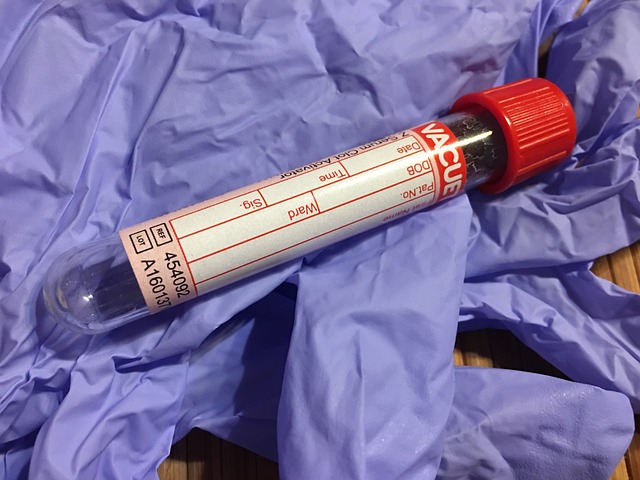In the UK, vitamin B12 deficiency is a growing concern for diabetics due to their increased vulnerability. Recognizing symptoms like fatigue, weakness, and memory loss is key, prompting the need for regular UK diabetes blood tests as part of routine check-ups. Early detection through these tests is vital to prevent nerve damage and cognitive impairment, maintaining neurological health and managing both diabetes and B12 deficiency effectively. Healthcare professionals strongly recommend testing for diabetics, emphasizing the importance of a UK Diabetes Blood Test for overall well-being. Understanding B12 deficiency involves interpreting test results within specific reference ranges (normal: 140-900 pg/mL, deficiency below 200 pg/mL) and discussing any deviations with a healthcare provider.
In the UK, vitamin B12 deficiency is a growing concern, with potential symptoms ranging from fatigue and weakness to neurological issues. Early detection through UK diabetes blood tests is crucial for effective management. This article delves into understanding B12 deficiency, highlighting key symptoms and risks specific to the UK population. We explore how UK diabetes blood tests play a pivotal role in diagnosing this condition and interpret key test results to empower individuals with knowledge about their health.
- Understanding Vitamin B12 Deficiency: Symptoms and Risks in the UK
- The Role of Blood Tests in Diagnosing Vitamin B12 Deficiency
- Interpreting Results: What Do Your UK Diabetes Blood Test Numbers Mean?
Understanding Vitamin B12 Deficiency: Symptoms and Risks in the UK
Vitamin B12 deficiency is a growing concern in the UK, with potential risks particularly pronounced for individuals with certain medical conditions, including those with diabetes. It’s crucial to be aware of the symptoms and to consider a UK diabetes blood test as part of regular check-ups, especially if you’re experiencing fatigue, weakness, or memory loss—common indicators that may point to a B12 deficiency.
Beyond these symptoms, prolonged lack of vitamin B12 can lead to more serious health issues, such as nerve damage and cognitive impairment. Early detection through blood tests is vital for preventing these complications. In the UK, healthcare professionals often recommend testing, especially for diabetics, to ensure optimal neurological health and maintain balanced energy levels—essential aspects of managing both diabetes and B12 deficiency effectively.
The Role of Blood Tests in Diagnosing Vitamin B12 Deficiency
In the diagnosis of vitamin B12 deficiency, blood tests play a pivotal role, offering a straightforward and effective method to uncover this often subtle yet significant health issue. These tests are crucial in the UK, where diabetes management is prevalent, as B12 deficiency can complicate glycemic control. By measuring the levels of specific markers in the bloodstream, healthcare professionals can accurately assess whether an individual is experiencing a shortage of this essential vitamin.
The most common blood test for vitamin B12 involves checking the levels of homocysteine and methylmalonic acid. Elevated levels of these substances indicate impaired B12 absorption or deficiency, prompting further investigation. This simple procedure allows for early intervention, which is vital as prolonged deficiency can lead to severe neurological and cognitive impairments.
Interpreting Results: What Do Your UK Diabetes Blood Test Numbers Mean?
When interpreting your UK Diabetes Blood Test results for Vitamin B12 deficiency, it’s crucial to understand the reference ranges provided by your healthcare provider. Typically, normal levels of Vitamin B12 in adults are between 140-900 pg/mL (picograms per milliliter). However, these ranges can vary slightly between different labs and countries, so always refer to your medical professional’s guidelines.
A deficiency is typically diagnosed when your Vitamin B12 level falls below 200 pg/mL. Levels between 200-400 pg/mL are often considered marginal or at risk, indicating a potential future deficiency if not addressed. If your test results fall outside these ranges, further discussion with your healthcare provider is essential to determine the best course of action for treatment and management.
Vitamin B12 deficiency is a serious condition that can be effectively detected through UK diabetes blood tests. By understanding the symptoms, recognizing the role of blood tests, and interpreting results accurately, individuals in the UK can take proactive steps to manage their health. Regular screening and awareness are key to preventing potential risks associated with this deficiency, ensuring optimal well-being.
